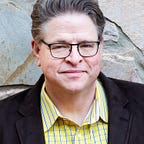3 Ways Your Organization Can Use Scenarios Right Now
Essentially, scenarios are stories of the future. Far from just literature or another tool, scenario planning is a method to learn about possible futures and how your organization will fit within them. The process itself allows people to understand the forces that will cause changes and shape the future. Creating scenarios helps to see how strategies, products, services, and people will fare in these possible futures and allow them to shape responses to these changes as they begin to occur.
The disruption caused by events, technology, or endemic changes in markets can be fatal to companies that did not anticipate or prepare for them. Using the past as a guide is nearly useless in a turbulent, uncertain, and novel environment filled with ambiguity. Although we cannot predict the future, we can examine the organizations’ environment through scenario planning to gain insights into the possible futures that will affect it. Here are three ways scenario planning can help your organization today.
Use scenarios to help with decisions.
Organizations make many decisions every day, but some decisions require more significant resources than usual or have a longer timeline for payback. Making these decisions can be more comfortable after running a scenario engagement built around the specific decision in question. Relying on forecasting alone to make decisions can lead to poor decisions due to forecasting’s inherent desire to remove uncertainty from the future. Scenarios, however, embrace uncertainty and seek to expose it so that the users fully understand the possible landscapes they face. This does not mean that more doubt is created by the teams undertaking the decisions, as most teams are already aware of but unsure how to account for the ambiguity they face. Scenarios play out these uncertainties in the external environment and provide a method to uncover and confront them. Ultimately the team is better informed whether to undertake the project or how better to future-proof it.
Use scenarios to challenge perceptions.
One of the biggest killers of innovation is falling into the trap of ‘we’ve always done it this way’ or thinking ‘it always works out this way.’ Organizations that fall into these self-reinforcing negative spirals when creating strategy or seeking new competitive advantages will find little relief from the future as it unleashes surprises that the old way of thinking did not anticipate. Creating scenarios will challenge these assumptions and the perceptions of the world these teams have and how their organization will navigate future challenges. In addition to moving the teams’ perceptions towards new thinking, the resulting scenarios will allow them to help other team members examine how the future will challenge their processes.
Use scenarios to guide strategy.
Integrating scenarios into an organization’s strategy process can provide competitive advantages. Consistently using scenarios to identify possible futures and then coupling the process with horizon scanning positions a group to identify future risks and opportunities as they manifest in the external environments. The first to spot changes in markets or societal changes that affect an industry can take advantage of the changing conditions before competitors even understand what is happening. If your organization could have a six-month or year advantage over your competitors, would that make a difference in your business?
We cannot predict the future, there are no facts about the future, and any numerical data we make about it are only estimates. However, we can understand it better by using scenario planning to find and understand the many hidden and apparent forces that affect our future. By teasing out the blind spots within your organization and understanding the external forces that create disruption, you can better avoid risks and take advantage of opportunities. Scenario planning is a way your organization can begin today to find the future and prepare for it.
